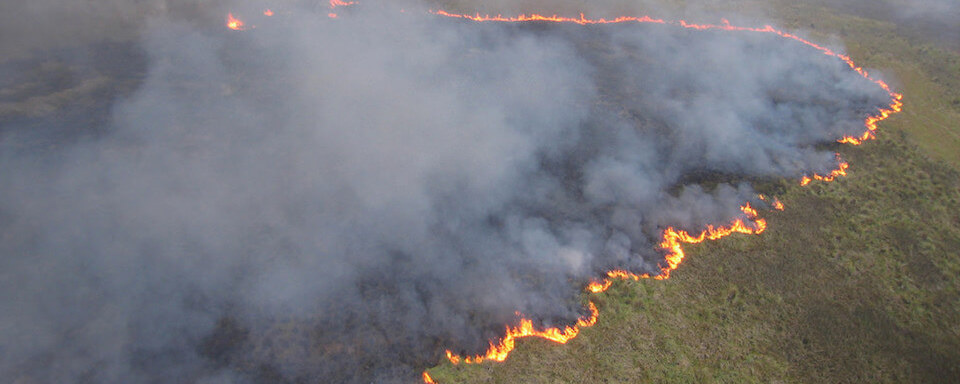- Altered Disturbance Regimes
Altered Disturbance Regimes

Many species and their associated habitats are dependent upon disturbance regimes to initiate life cycle phases (e.g., seed release, germination, breeding). Florida has many species that only thrive in fire maintained systems. Other disturbance regimes, if altered, could be detrimental to species and habitats, including increased severity and frequency of storm events, flooding, droughts, and wildfire.
Impacts of Warmer Temperatures:
- Low oxygen – leading to fish kill events
- Range expansion of invasive exotic species
- Increased risk/occurrence of wildfires
- Loss of keystone species
Impacts of Increased Cold Events:
- Increased occurrence and severity of cold kill events
- Increased mortality for cold temperature sensitive species
Impacts of Increased Precipitation:
- Increased connectivity of ephemeral wetlands to adjacent wetlands and water bodies due to flooding
- Reproductive failure for ground-nesting birds due to flooding
- Scouring of the streambed
- Altered fire regimes
Impacts of Decreased Precipitation
- Reduced forage due to drought conditions
- Loss of critical sources of freshwater
- Increased risk/occurrence of wildfires
Impacts of Changes in Timing of Precipitation:
- Decreased reproductive success of fish due to lack of connectivity to spawning grounds as timing of flood events change
Impacts of Changes in Frequency and Severity of Extreme Events:
- Displacement – carried away by winds/water
- Exposure to increased salinity – storm surge
- Loss of habitat – flooding, storm surge, drying up of source of freshwater, wildfire
- Loss of food source
- Increased morality
- Increased stress due to injury
What's next?
Learn about loss of keystone species from changes in climate in Florida.